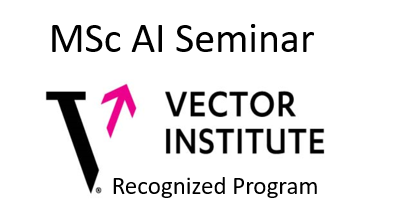Thursday, June 1, 2023 - 10:00 to 11:30
SCHOOL OF COMPUTER SCIENCE
The School of Computer Science is pleased to present…
MSc Thesis Proposal by: Pooja Chandrasekharan
Date: Thursday, June 1, 2023
Time: 10:00 AM – 11:30 AM
Location: Essex Hall, Room 122
Reminders: 1. Two-part attendance mandatory (sign-in sheet, QR Code) 2. Arrive 5-10 minutes prior to the event starting - LATECOMERS WILL NOT BE ADMITTED. Note that due to demand, if the room has reached capacity, even if you are "early" admission is not guaranteed. 3. Please be respectful of the presenter by NOT knocking on the door for admittance once the door has been closed whether the presentation has begun or not (If the room is at capacity, overflow is not permitted (ie. sitting on floors) as this is a violation of the Fire Safety code). 4. Be respectful of the decision of the advisor/host of the event if you are not given admittance. The School of Computer Science has numerous events occurring soon
Abstract:
To enhance road safety, Vehicular ad hoc networks (VANETs), an emerging wireless technology used for vehicle-to-vehicle and vehicle-to-infrastructure communication, are essential components of intelligent transportation systems (ITS). It also provides additional services to vehicles and their users. However, vehicles must balance awareness and congestion control in a dynamic environment to accomplish reliable transmission of basic safety messages (BSMs) and event-driven warnings. The limited channel capacity makes the reliable delivery of BSMs a challenging problem for VANETs. This paper aims to optimize the performance of VANETs by effectively managing channel load and reducing congestion by maintaining channel busy ratio (CBR) near the threshold value of 0.6. This is resolved using a transmission power-based congestion control algorithm that employs a Markov decision process (MDP) and solves it using a Q-Learning algorithm. The algorithm uses varying transmission power levels to lower the channel busy ratio while maintaining high awareness for surrounding vehicles. According to simulation results for various traffic scenarios, the suggested technique chooses a suitable transmission power depending on the present channel circumstances to achieve a balance between awareness and bandwidth usage. The findings show that, for both low and high traffic densities, the proposed strategy reliably maintained the channel load at or near the stipulated level without surpassing it.
Keywords: VANET, Congestion Control, Reinforcement Learning, Q-Learning
MSc Thesis Committee:
Internal Reader: Dr. Shafaq Khan
External Reader: Dr. Animesh Sarker
Advisor: Dr. Arunita Jaekel
MSc Thesis Proposal Announcement 
5113 Lambton Tower 401 Sunset Ave. Windsor ON, N9B 3P4 (519) 253-3000 Ext. 3716 csgradinfo@uwindsor.ca
